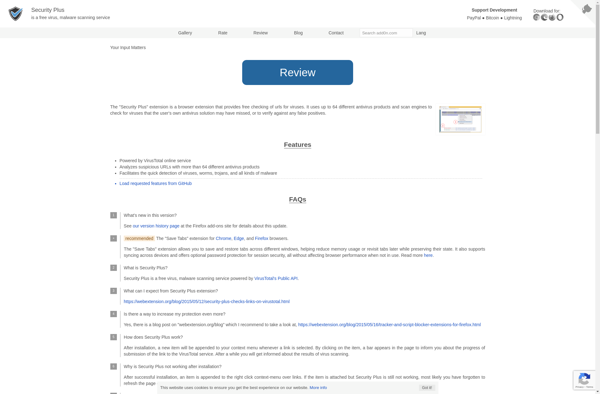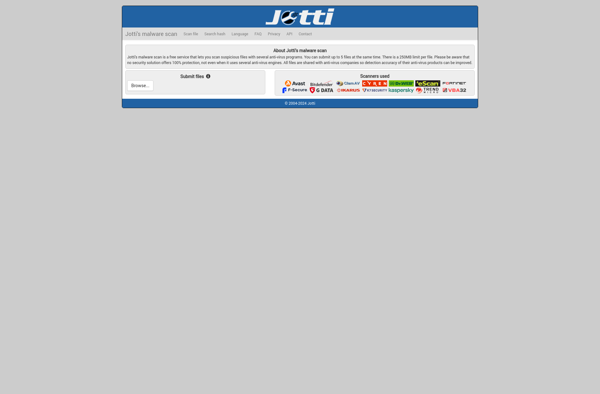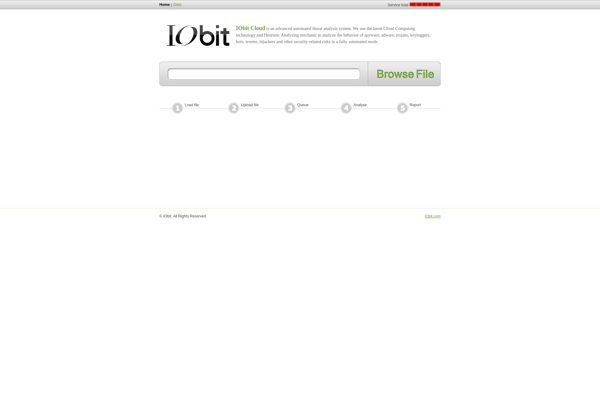Wepawet
Wepawet: Web Vulnerability Analyzer
Detects potential vulnerabilities and malicious code in web pages, scans for common attacks like cross-site scripting and SQL injections
What is Wepawet?
Wepawet is an online automated web analysis service that detects and analyzes potential security vulnerabilities or malicious code in web pages. It was developed by researchers at the University of California, Santa Barbara to identify common web-based attacks.
When a web page URL is submitted to Wepawet, it visits the page and scans the code for signs of attacks like cross-site scripting (XSS), SQL injection vulnerabilities, or obfuscated JavaScript that may contain malware. It also detects redirects, iframes, and other potential vectors for attacks.
One of the key features of Wepawet is its specialized detection of drive-by download attacks. It analyzes sites for URLs or code that may automatically download malware without the user's consent when visiting a webpage. The service also checks for URL shortener links that attempt to hide malicious destinations.
Beyond scanning for threats, Wepawet also gives technical analysis on the inner workings of JavaScript code. It outlines potential vulnerabilities in detail and highlights relevant code snippets. The findings allow developers and security professionals to understand and remediate issues.
While not a complete web security solution, Wepawet provides a useful free service for assessing pages and applications for common threats. The data it provides can help identify weak points to improve security.
Wepawet Features
Features
- Detects common web attacks like XSS, SQLi, RFI, etc
- Analyzes JavaScript for obfuscated or malicious code
- Checks for embedded Flash files and Java applets
- Scans for drive-by-downloads and iframe injections
- Provides analysis of web page code and resources
- Integrates with search engines to find malicious pages
- Offers API access for automated scanning
Pricing
- Free
- Freemium
- Subscription-Based
Pros
Cons
Official Links
Reviews & Ratings
Login to ReviewThe Best Wepawet Alternatives
Top Security & Privacy and Vulnerability Scanner and other similar apps like Wepawet
Here are some alternatives to Wepawet:
Suggest an alternative ❐VirusTotal

MetaDefender

Joe Sandbox

Security Plus

Jotti

IObit Cloud
